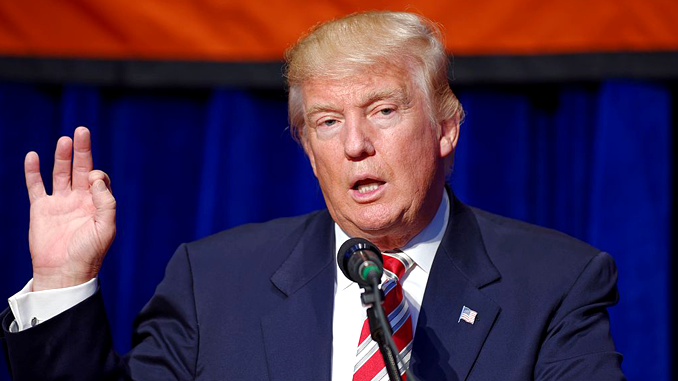
On August 5, the U.S. Treasury Department officially labelled China a currency manipulator. In the press release following the decision, U.S. policy was made clear:
As a result of this determination, Secretary Mnuchin will engage with the International Monetary Fund to eliminate the unfair competitive advantage created by China’s latest actions.
The decision followed a series of tweets by the President on the subject:
Setting aside the economic ignorance inherent in these tweets… a tariff is a tax on consumers, a trade imbalance means consumers receive goods at lower prices, etc… there is an important reason why Trump is focused on the words “currency manipulator”. It is because he pledged to label China as such during his 2016 election campaign, and he wants some examples of keeping his promises during his 2020 election campaign.
As all of us predicted during the prior campaign, he did not build “the wall”. While expectations varied (my own prognostication was that 50-100 miles of new wall would be built to great fanfare, and that was all) among his detractors, many of his fans truly believed it was going to happen. This is a promise which was not kept.
He pledged to lower taxes, which happened… but taxes are going to be rising for individuals next year, because the only taxes which were permanently lowered were corporate taxes. This is going to undermine his ability to campaign on the tax issue.
He also pledged to bring China to heel. His pronunciation of “Chy-na” became a running joke among his critics, because of how often he discussed them. Now, years later, the trade war which he claimed would be easy to win continues onward. The tariffs he championed have done no good. The trade imbalance, which he told his fans was key, remains high.
He’s actually made the situation far worse. China had agreed to police its copyright and trademark violators, which was the best we could expect regarding forced technology transfers. They were never going to agree to let our technology enter their country without examining it, not while they’re still a powerful adversary and after we spied on the German Chancellor and performed invasive cyberattacks on Iranian hardware.
China had also agreed to crack down on illegal drug production and distribution to the United States. According to the President, they are not doing so. During times of better relations, when Chinese products were deemed dangerous (like children’s toys or pet food) they pulled them from markets. They no longer have incentive to do so.
China has also effectively sought new suppliers for many of the agricultural products previously purchased from the U.S. Crops like soybeans are not only going to die unharvested in our fields, but are also unlikely to have their market return even after the trade war is resolved. New supply chains have been formed, and there is little incentive to return to old, unstable ones.
It is within this context that Trump has decided to label China a currency manipulator. It is a signal that he recognizes his trade policy with the nation is a complete failure, and he is trying to salvage some personal political gain from the situation.
The Chinese, on the other hand, are now playing the carrot-and-stick game. Having tanked international markets by devaluing their currency, they are now buoying the markets by only devaluing it a little, not the steeper cut that was expected. This is projected to result in a stock bounce today. The Chinese are showing President Trump that they can control the American stock exchanges, which are the tools he expects to use for re-election.
Some of Trump’s fans will argue that the Chinese are backing off, following the threat of IMF intervention. This is ludicrous. The trigger has already been pulled on the gun; the Chinese have been labelled a currency manipulator. Just as the designation was an admission of American policy failure, the diminished rate drop is China demonstrating to Trump that they have a position of dominance in trade negotiations… something which will likely have strongly negative ripple effects for future political and military actions in Southeast Asia.
